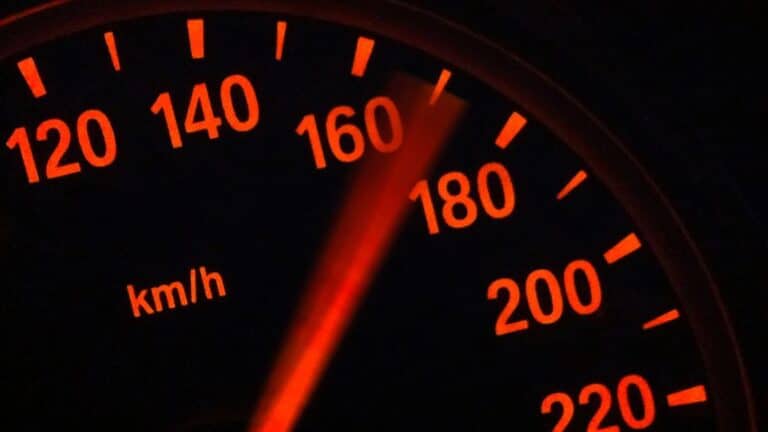A speeding ticket is often treated by drivers as a minor issue. However, a ticket comes with serious consequences, especially if you gather up a lot of them in a brief period. The penalties can range from fines to license suspension and more. However, you can explore alternate options with the help of an Irvine car accident attorney.
It is important to understand the full impact of a speeding ticket on your DMV record and your auto insurance rates. Here’s a look at both.
Impact on Your Auto Insurance Rates
The auto insurance rate you get as a driver reflects the risk you offer on the road as the driver. When that risk is low, the insurance rates remain low. When the risk of you getting into an accident is higher, the insurance rates hike up.
This is why receiving a speeding ticket has a direct impact on your auto insurance rates. Even with a simple speeding ticket on your DMV record, an insurer is very likely to offer you higher rates. In fact, studies show that an average Californian driver aged 40 is likely to pay up nearly 42% more than the standard rates after a single speeding ticket. You are typically stuck with a higher insurance rate for 1 to 3 years after getting a ticket in California.
How Long Does the Point Remain On My DMV?
The duration for which a speeding ticket point remains on your DMV record can vary widely. On average, this duration is 3 years. However, it can go all the way up to 13 years, depending on the nature of the moving violation for which you are penalized.
If you receive a one-point traffic ticket, it stays on your DMV record for 3 years. After 39 months have elapsed since the ticket, you can request the DMV to purge the point from your record.
For a two-point traffic violation, the violation will remain a part of your DMV record for 7 years. Once this period has passed, you can make a formal request to the DMV to remove the point from the record. Examples of a two-point violation include speeding over 100 mph and driving on a suspended license.
More serious two-point traffic violations such as DUI or a more aggravated scenario of driving on a suspended license stay on your record for an even longer period. Such violations will remain a part of the DMV record for 13 years. You can then ask the DMV to purge the record after the said period has elapsed.
What Happens When You Get Multiple Tickets?
Each ticket results in one or more points added to your record. When you acquire two points in a 12-month period, four points in a 24-month period, or six points in a 36-month period, DMV sends you a warning letter. The letter details how too many points in a given period can result in adverse consequences for you.
If you get 3 points in a year, 5 points in two years, or 7 points in three years, a second DMV letter is issued. This is like a final warning from the agency.
When the number of points you receive go up to 4 in a year, 6 in two years, or 8 in three years, DMV issues an order of license suspension or probation. The license is typically for a period of 6 months although DMV can suspend the license for up to one year.
Can I Pay Fines and Avoid Tickets?
The short answer is, yes. However, it’s not that simple. When you get a ticket, you can pay off the fine but you must also attend traffic safety school to prevent receiving a point. The thing about traffic school is that you can’t attend the school a second time until 18 months from your first attendance. If you incur a ticket in between, you can’t avoid a point as you won’t have the option of attending the school.
Hiring an Irvine Car Accident Attorney
If you have received a traffic ticket and want help with avoiding incurring points on your record, or if you want a point purged from your record after the stipulated period, we can help you. Here at Crockett Law Group, our attorneys can help you with moving traffic violations, traffic crashes, crash injuries, and all related areas. Get in touch with us today to book a free consultation with our attorneys.










